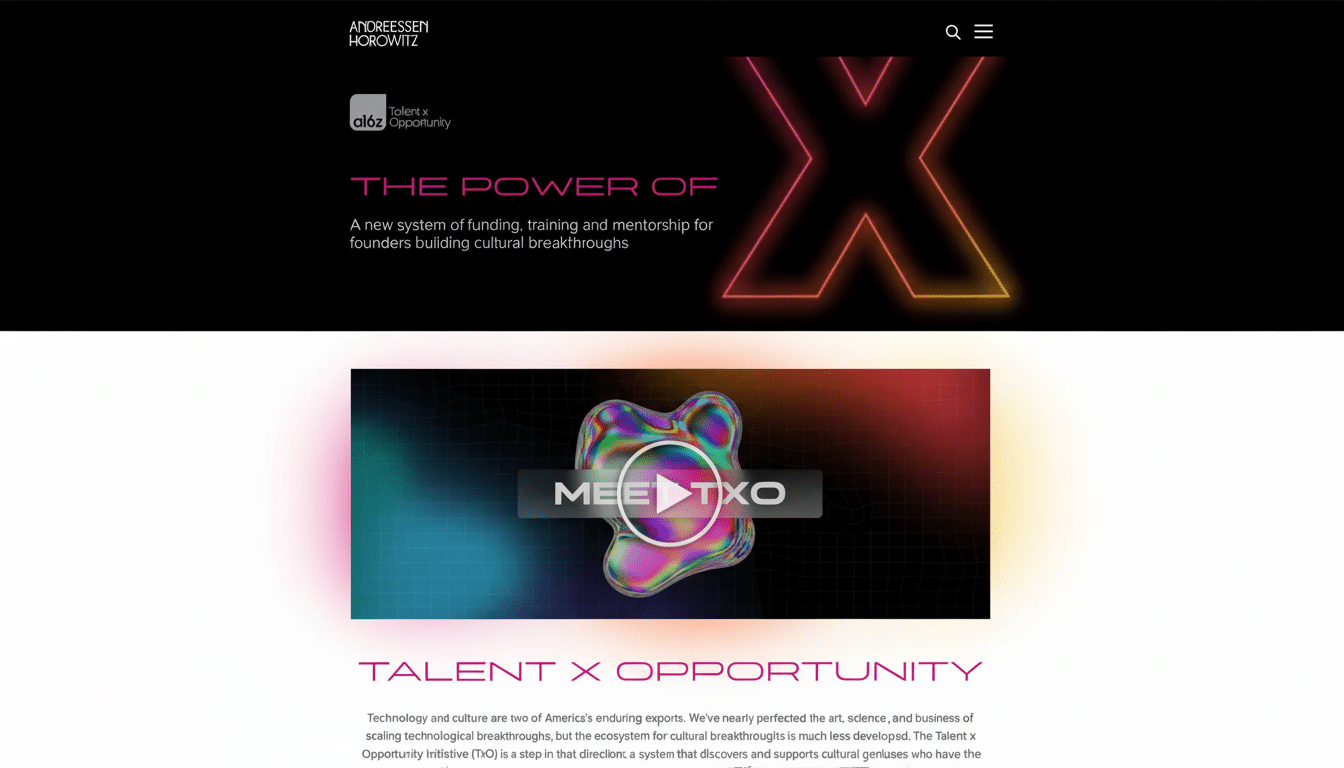People familiar with the decision said that Andreessen Horowitz has hit “pause” on its Talent x Opportunity initiative and laid off multiple staffers working on the project. The closure of one of Silicon Valley’s most prominent attempts at funding founders with alternative access to venture capital, in a market that is increasingly challenging, raises questions about how big corporations will continue to back underestimated entrepreneurs. TxO was created to connect entrepreneurs from neglected communities to venture networks and company-building knowledge. It provided a 16-week curriculum, mentorship, and $175,000 in capital via a donor-advised fund governed by the Tides Foundation. According to documents that a16z provided, over its lifetime the initiative funded more than 60 companies such as Brown Girl Magazine, Myles Comfort Foods, and mommy-tech Villie.
Inside the pause, departures, and what changes next
The most recent cohort’s founders were shocked by an email from program lead Kofi Ampadu announcing that the TxO program is temporarily shutting down while the firm “rethinks how it backs the next generation of early-stage company creators.” According to multiple recipients, the note stressed that the firm wanted to “take the open-source nature of this project and build it into what we do every single day within the broader a16z.” Two sources familiar with the alterations imply that several TxO team members — at least three, other than Ampadu — have left. That decision effectively rendered the committed infrastructure that powered TxO’s reach, selection, and alumni engagement programs inactive.

Criticism and support for TxO’s donor-advised model
TxO’s structure — a capital stack delivered through a donor-advised fund and defined as charitable giving, not as standard limited partner commitments — may make it unusual compared to most venture-backed programs. That origin has also been a source of criticism from some corners of the ecosystem, who prefer the traditional, carry-driven incentives of venture funds. Proponents argue that the origin gives more freedom to take risks in historically overlooked markets outside the constraints of a classic fund mandate. Although TxO’s application materials would prioritize qualities like market size and execution capability, they would also highlight “cultural authenticity,” reflecting the mission to back founders working to serve communities often ignored by mainstream venture. Prior alumni of early-stage cohorts would frequently advise newer founders, creating a feedback loop of peer support that many participants feel helped them grow far faster than they might have otherwise.
Market headwinds and DEI funding trends intensify
The pause lands amid a broader trend of a shrinking market where DEI-driven programs across tech account for less and less venture fund deployment. According to the PitchBook-NVCA Venture Monitor, overall U.S. venture deal value fell sharply from its peak as part of a broader pullback as investors tightened diligence and pacing. The contraction has long disproportionately affected underrepresented founders. Crunchbase’s diversity tracking shows startups with Black founders capturing between 1% and 2% of U.S. venture dollars annually over the past decade, with Latinx-founded startups in a similar low single-digit percentage range. PitchBook estimates that all-women founding teams capture less than 2% of annual U.S. venture capital. Research from the Kapor Center and Kauffman Foundation has repeatedly linked these gaps to network access and early-stage capital frictions — the exact frictions TxO aimed to eliminate.

Speedrun and the question of inclusive investment models
TxO participants, totaling almost 100 founders, have raised tens of millions in follow-on capital, according to numbers obtained by alumni. However, the underserved or underestimated founders’ desire for first-check support and structured mentorship greatly surpasses the quantity of programs designed to fulfill this goal. This is also a pattern in the current generation of founders. The firm has not completed its programmatic investment withdrawal. This year, it presented Speedrun, a cohort-based endeavor that can generate checks of up to a million dollars for program graduates. It demonstrates that there is still a desire for the accelerator-style scale-up that AngelList defined; however, it is carried out via vehicles that are aligned with the core money of the fund. The comparison implies that a16z and TxO may consolidate their attempts under a program that conforms to VC market best practices while incorporating lessons learned from TxO into their main lines.
This blog explores the landscape of accelerator funding. On the ground, things seem to be in a state of turmoil. Legal pressures and shifting market tides have put several efforts branded around DEI on the block. At the same time, funds aligned with missions such as Kapor Capital and operators like Collab Capital and Visible Hands remain committed to deploying and expanding founder services. Corporate venture resources are also seeking refuges and destinations such as AI and fintech infrastructure where they can justify strategic overlap and a clear return. The subsequent challenge is to see if inclusion is incorporated into a significant percentage of the firm’s new seed and pre-seed acquisitions, or if this has slipped into sidelining. LPs stress that while the eligible TxO communities remain eager, disrupted continuity and a year’s cohort momentum provide an opportunity without a committed team.
What founders and companies can do next
- For underserved founders: it’s about finding new pathways quickly. These could include local accelerators with investment, grant‑backed pre‑seed vehicles, or sector-specific programs known for highly engaged, company-building models.
- For big companies: it’s a broader question of whether the next inclusion wave isn’t about standalone initiatives. Instead, it is about rewiring how deals are discovered, chosen, and backed — widely and at scale.

